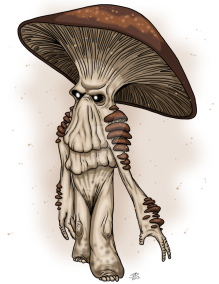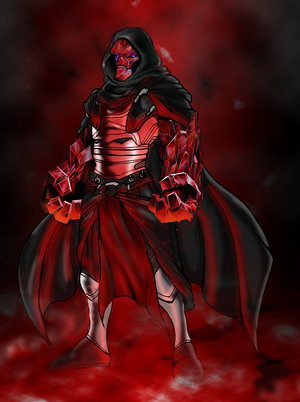Subject: Dice Mechanics (now in full)
Author:
Posted on: 2016-11-24 17:12:39 UTC
Please Note: For the majority of things I (The DM/OP/whatever you want to call me) will be doing the rolling. Some things (like Health) you can do the rolling for. Please be honest when you say what you have rolled, I will be and I will try and make sure I'm at least on Discord, if not in a voice channel when I'm doing it.
Modifiers
Cir or Circumstance is when the circumstances the character is in have either a positive or negative affect on what they're trying to do (you can't fight effectively if you're dangling over a pit and holding on with one hand for example). It can also be used as a catch-all modifier for anything that could arise in the RP, if trying to do the impossible, expect a large negative circumstance modifier. A few Circumstance modifiers are permanent whilst the majority will be active for a set number of turns, or until something else happens (in the example above the circumstance negative modifier persists until the character either falls in the pit (they're then not fighting) or until they get out of the pit (no longer dangling over the edge)).
Inj or Injury. Only a negative modifier, Injuries happen in the same kind of way they do IRL. Injuries will wear off after a while to mimic your characters either healing or just getting used to the pain. They can also be healed by certain items, Clerics and potentially by friendly NPC's. Injuries also cover poisons and the like.
Arm or Armour. How much protection you are wearing. There are four types of armour in the RP, Clothing which can naturally confer a +1 bonus max. Light Armour which can naturally confer a +3 bonus max. Mail Armour can naturally confer a +5 bonus max. Heavy Armour can naturally confer a +7 bonus max and Plate Armour can naturally confer a +9 bonus max. Although Class and Race powers can improve these bonuses above their normal maximum. If you pick two different class powers through the use of the Natural Class Race power, then the lowest armour type is the one you are able to equip. Shields will also give an Armour bonus, and can be wielded by any class, although if you have a Shield you can't wield a two handed weapon.
Dam or Damage. The amount of bonus damage you do with a weapon, all weapons will have a set damage bonus they will give you which can then be increased or decreased by your characters powers, and any enchanting or improving of the weapons you may do. Shields can also turn their armor bonus into a damage bonus if you try bash with them. Weapons are either one handed or two handed (you will be told which).
Dice Rolls
Combat
In combat a D20 will be rolled for each character fighting, both PC and NPC. Every PC has a base 'Armour' of 5 (meaning that the dice roll, plus modifiers must be at least 5 to hit), some NPC's will have a higher base Armour, and a couple may have lower. This base armour is then modified by the characters armour score and any circumstance or injury modifiers that may effect the characters defence. The overall armour is then compared against the dice roll which will have also taken into account Damage, Circumstance and Injury modifiers, which forms the overall attack. If the attack is greater than the armour, then the character loses HP equal to the difference, if the attack is equal to, or more than half the armour score, then nothing happens, if the attack score is less than half the armour score, the attacking character's weapon will break (if they are wielding one) or they will either suffer Injury of some kind, or lose HP otherwise. If the attack is over double the armour score, then either a piece of the defending characters armour, or if they have no armour on (or nothing that gives an armour bonus on), the character will suffer another hit at half the original attack score. A Natural 1 will always fail to do damage, and a natural 20 will always do damage AND be treated as if the attack was double the armour score. Fractions will always be rounded UP.
Exploring covers every scenario which is not combat. In this case 2D6 are rolled, then modifiers are added, with the following being the results:
1 or less: Epic failure of Epicness: You fail, so badly in fact that I'm wincing just thinking about it.
2:Epic failure: you fail, badly. Like really badly, so badly in fact I'm surprised you got to here without an accident
3/4:Failure; It didn't work out for you, in fact it didn't do anything.
5/6:Success (barely): Didn't exactly do what you wanted it to, but no bad side effects.
7:Success: Wow it actually worked out for you, did exactly what you wanted it to. no extra's but no bad points either.
8/9:Good Success: It worked slightly better than you thought, and no side effects that may harm you, isn't it just brilliant?
10/11:Brilliant Success: It worked a lot better than you thought it would, perhaps the Gods are smiling on you today.
12 or more:Godly Success: It worked so well it may of worked too well. now that's a problem.
Health.
Every Character has health, the amount depends on your Race. When you reach 0 health, that's it you die, if you do die you are allowed to re-enter with a new character who will be dropped off at the point where your last character died. Necromancers will be allowed to raise any dead PC's and they will re-roll the dice to see how much health they come back with. Do not fear though, for there will be plenty of chances for you to recover health along the way, as well as the fact that some of your fellow party members may be able to heal you. If you are a Thir-Kreen, Elf or Halfling you will start with 1D20 +6 Health, if you are a Tako, Dwarf or Centaur you will start with 1D20 +8 Health, If you are a Shardmind, Half-Orc or Lizardman you will start with 1D20 +10 Health. NPC's will have between D6 and D100 health dependent on their race and when you meet them. (an example of a D100 NPC would be a Dragon, whilst a D6 NPC would be a Wolf).





